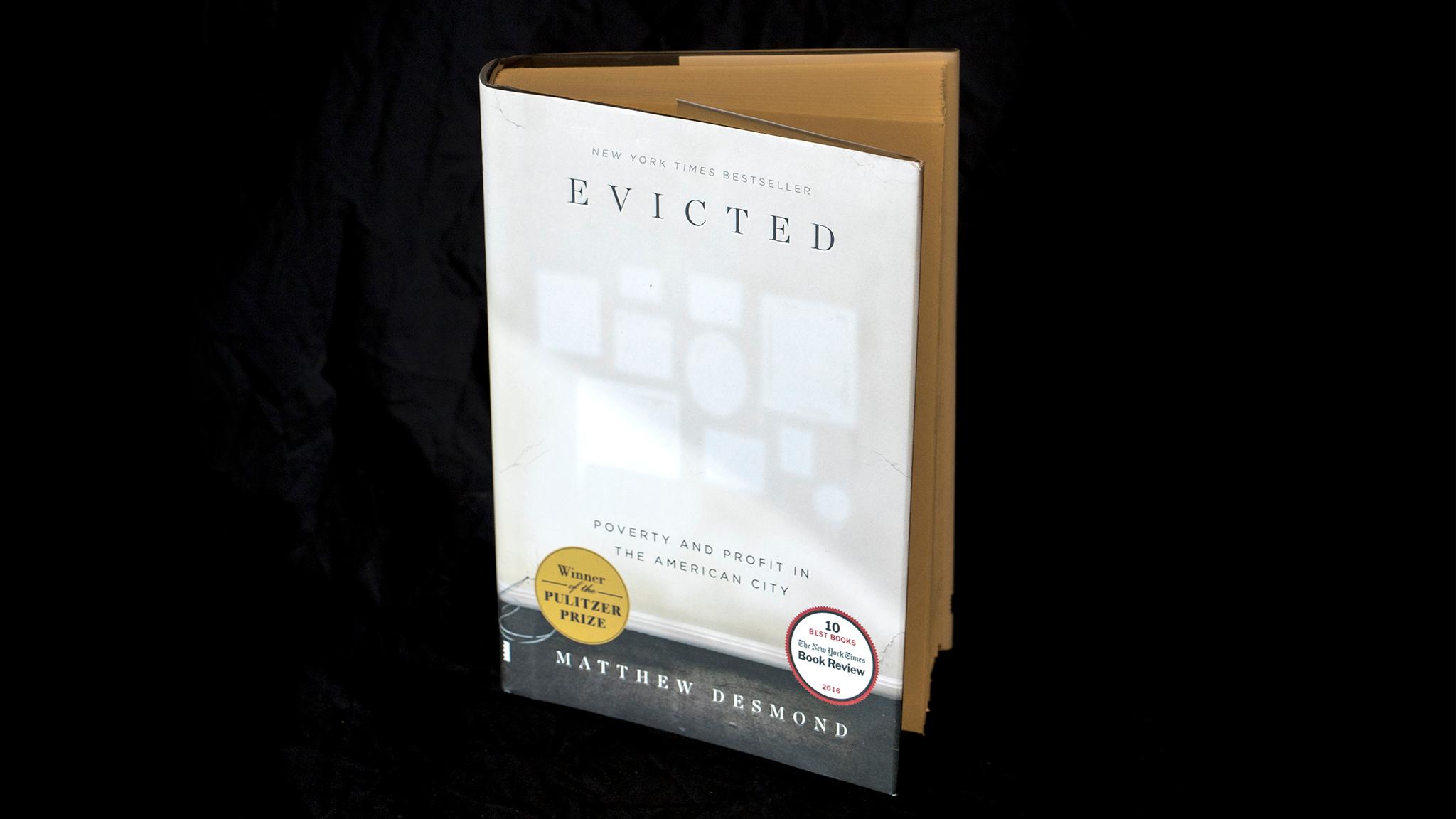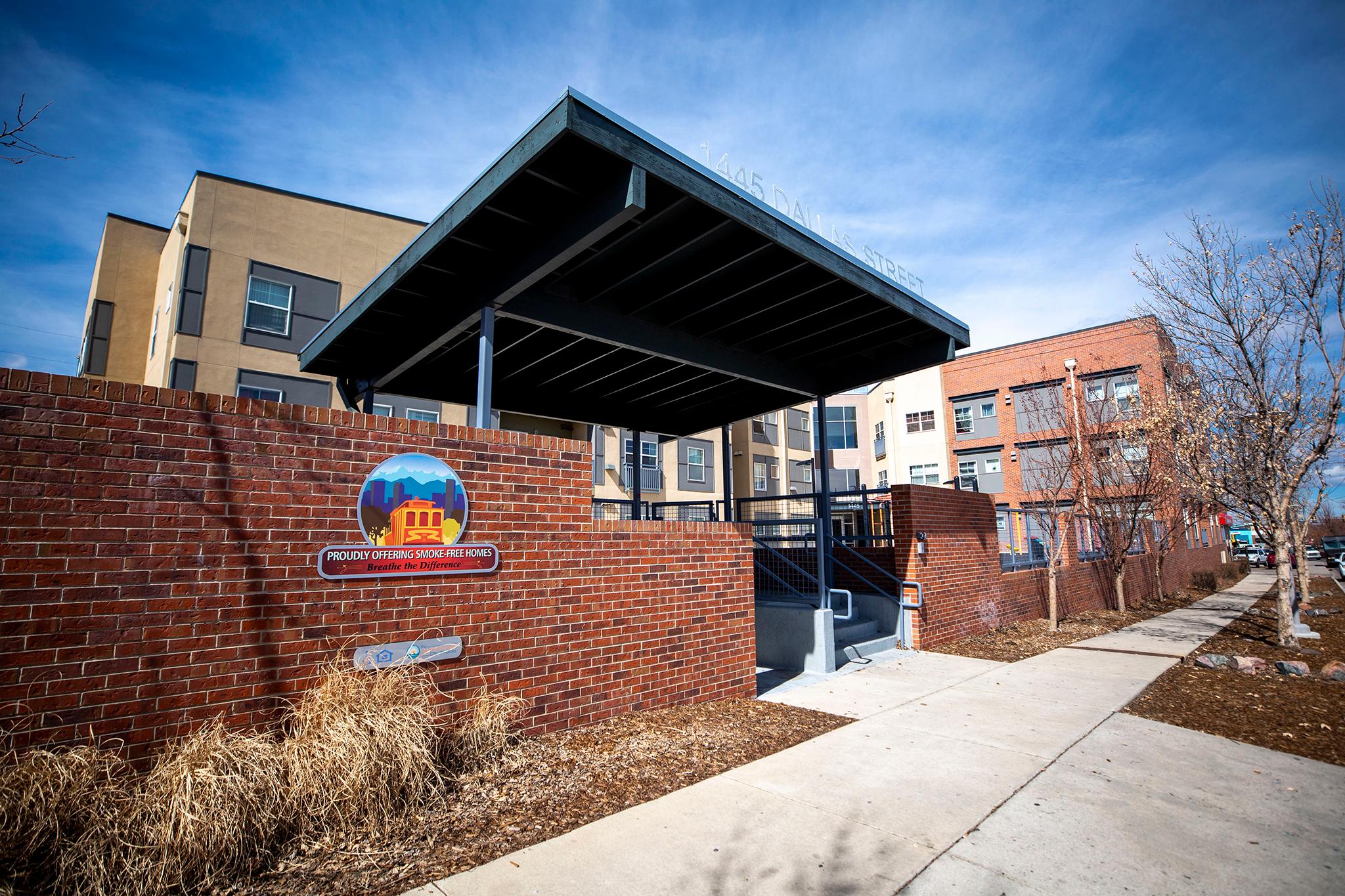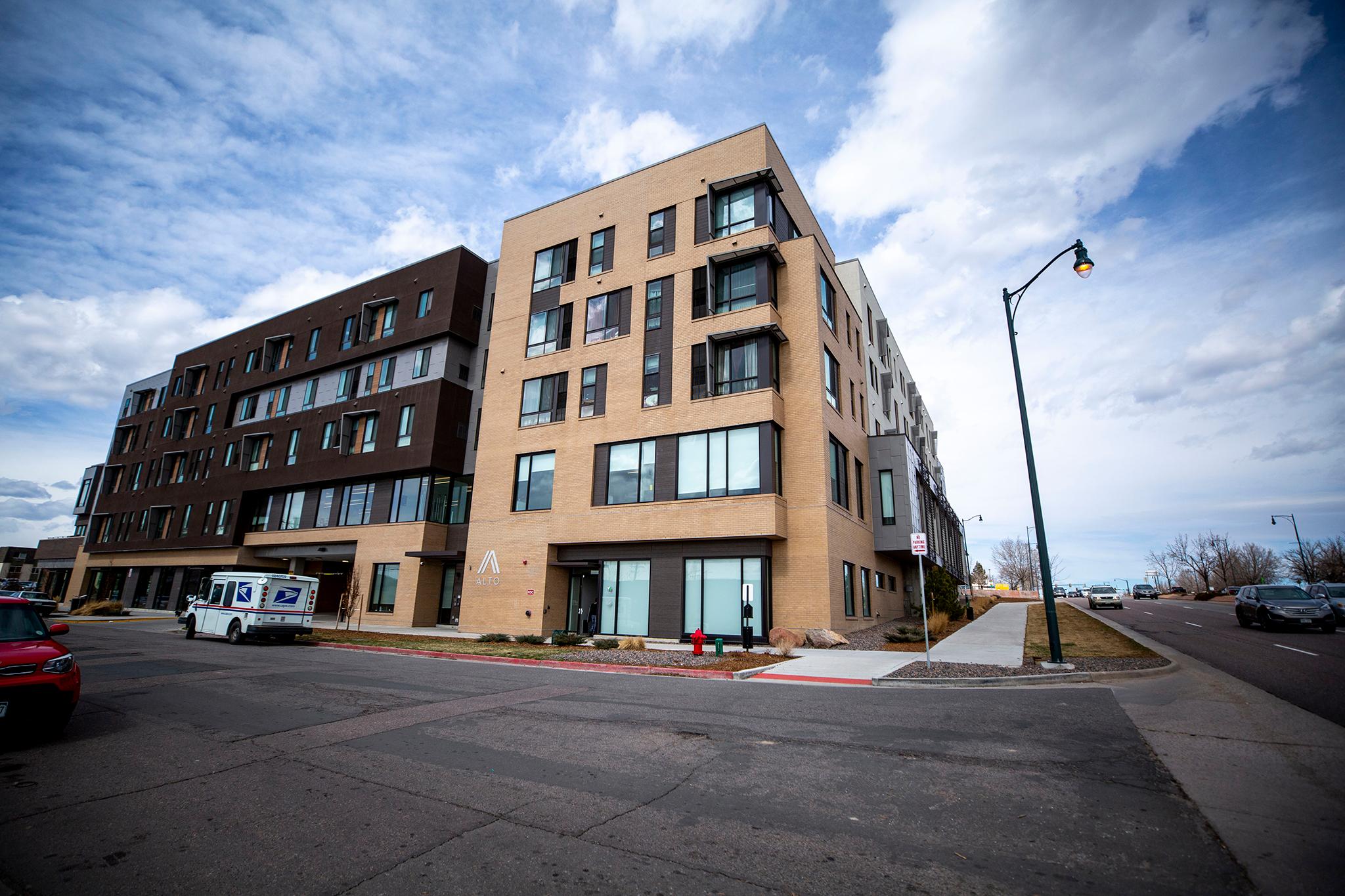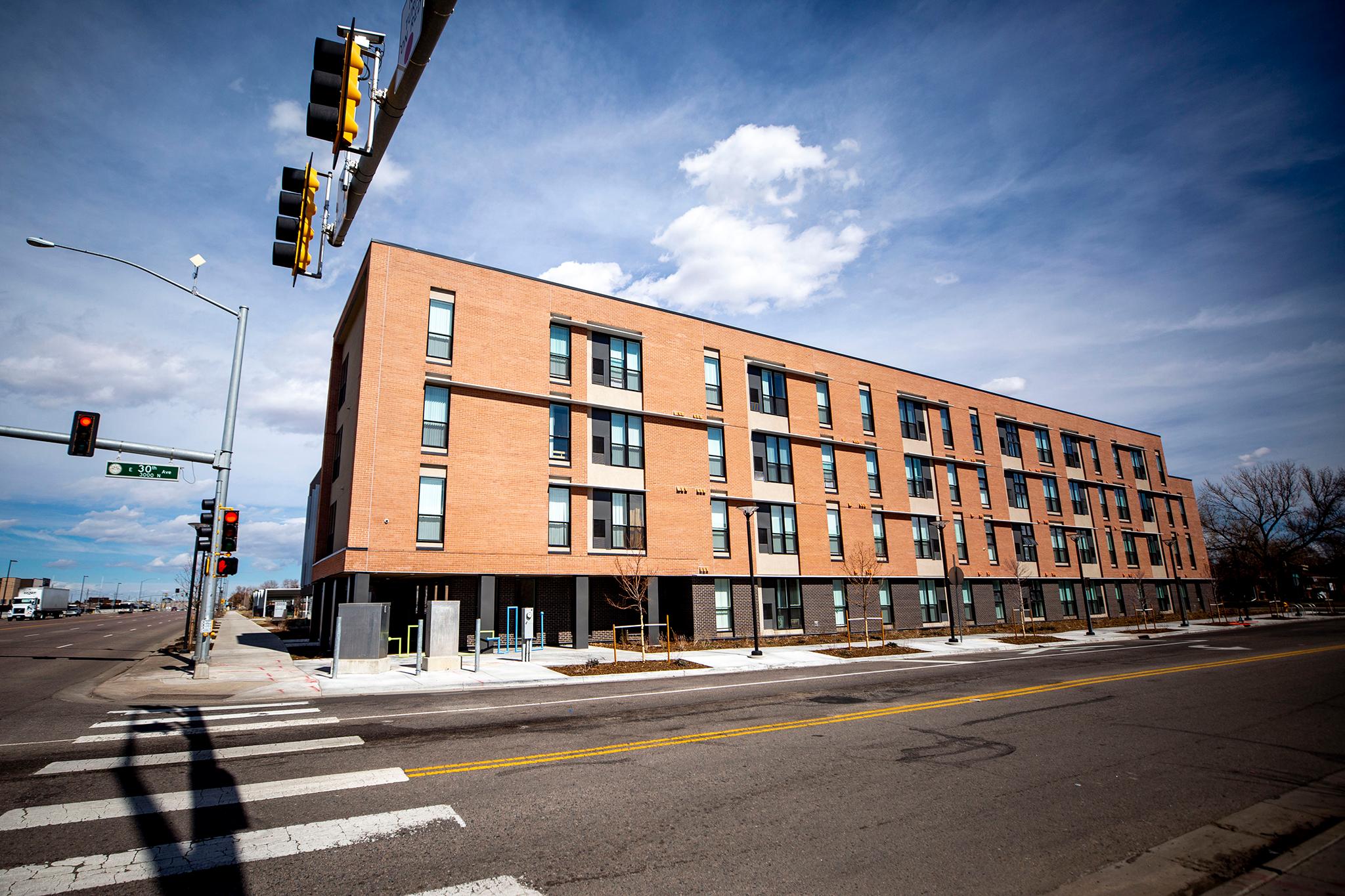Aurora housing authority social worker Laura Coddington spent one weekend absorbed in a book about evictions.
When she got to work the following Monday, Coddington told her boss she thought their whole family services team, which provides case management support to tenants, should read "Evicted." Upon finishing sociologist Matthew Desmond's study of how losing housing can be disastrous for generations of impoverished families, Coddington's department put together a plan to cut down on evictions from their housing authority's 800 or so units in buildings scattered around the Denver suburb.
"We're a housing authority," Coddington said. "We're supposed to keep people housed."

Under what's called a housing stabilization pilot that started last year, Aurora housing authority building managers notify family services when a tenant falls behind on the rent. Coddington then determines whether paying a month's rent would be enough to keep the family housed. If so, what is owed is covered from the authority's general budget. Each household is eligible for the assistance only once a year.
Now another Denver area housing authority, Maiker Housing Partners in Adams County, has started a similar pilot. This month, Maiker, until recently known as Unison Housing Partners, began sending offers of rent grants instead of eviction notices to tenants who had fallen behind.
"We need to make some of these changes and be at the forefront as anchor institutions," said Peter LiFari, Maiker's executive director.
According to Eviction Lab, which "Evicted" author Desmond runs at Princeton University, Aurora has the 33rd highest eviction rate in the country, at 5.52 evictions for every 100 renters. Aurora is the highest ranking Colorado city on Desmond's top-100 list, ahead of Thornton (which is in Adams County) with a rate of 4.64, Colorado Springs at 4.19, Westminster at 3.16 and Lakewood at 3.15.
The Aurora housing authority estimates its own rate as less than the city's overall average, at 1.36.
Aurora's pilot is a step beyond the payment plans the authority has worked out with tenants in the past. Coddington's boss, Melinda Townsend, said it fits the tone set by Craig Maraschky, executive director of the Aurora housing authority, who she said was quick to support the anti-eviction program.
"He's the kindest and fairest boss I've ever had," said Townsend, who is deputy executive director for housing and family services for the Housing Authority of the City of Aurora.
Private landlords often reject prospective tenants who have eviction records. Housing authorities rely on federal funds and have to follow federal regulations that bar people who have been evicted from some programs for up to five years, Coddington said.
"We have rules that are set far above any of our pay grades," she said.
Eviction also has a price tag for landlords. The Aurora housing authority estimates it at $2,030 per eviction, including court fees and the costs of readying an apartment for a new tenant.

The first referral Coddington received was last May. A woman who had fled domestic violence had been promised financial support from a victims' services agency that she planned to use to pay her deposit. The housing authority had agreed to wait for the deposit, and the woman was paying her rent regularly. But she faced eviction because the money from the victims's services agency did not come through. Coddington arranged for the deposit to be paid.
As of early March, a total of six Aurora housing authority tenants who got eviction prevention grants all were still stably housed. The average rent payment was $1,632, $400 less than the cost of an eviction, Coddington said.
Coddington said health issues are what usually lead to tenants losing their jobs and then needing her help with the rent.
The rent is due on the fifth day of the month for Aurora housing authority tenants. Last year, the state legislature extended the time before eviction proceedings could be started from three to 10 days. Under the Aurora pilot, on that 10th day, a referral is made to family services.
Townsend said in at least one case, a tenant was able to find the money for rent between the time she was a referred to family services and Coddington was able to reach out to her. But in other cases, tenants who were behind on the rent simply left before Coddington called.
"Folks get scared," Townsend said.
In addition to the six tenants who got help from the pilot, two tenants were referred to Aurora@Home, which brings together officials from Aurora nonprofits and city and Arapahoe and Adams counties to provide housing and services for families at risk of slipping into homelessness.
"Our people are diverse, their situations are diverse," Townsend said.
"There are people who have complicated histories," she added, saying one month's rent isn't enough to help everyone.
No spending limit was set for the pilot. Once it has been in place for a year, housing authority officials will weigh the costs and benefits and decide whether to continue.
"I hope that we'll continue," Coddington said. "Because I think we've been successful so far."
She said she measured success not just in terms of money saved on pursuing evictions, but in "the actual lives that we're impacting."
In Adams County, Maiker Housing Partners set aside $100,000 from its budget for its anti-eviction program. It's money that might have been used for, for example, to hire a case manager to support tenants that Maiker staff refer to as community members.
"We think we can do something intently by just giving it (the money) to the members," LiFari said.

Drew O'Connor, Maiker's deputy director, has been developing the eviction protection protocol for more than two years. He said it grew out of an acknowledgement that poverty is systemic and that "we believe in people."
While the Aurora housing authority works through its building managers, Maiker planned to notify households that fall behind on the rent that they are eligible for grants. The first letters will go out Monday, 10 days after March rents are due from the more than 1,700 Maiker households.
Lifari expected the pilot to last a year, but said that after the first three months, staff will gauge demand and whether the approach is sustainable. He said he expected 50 to 100 households to need grants over the year.
O'Connor said the annual cost to Maiker of evictions was $116,240, and that another $84,610 was lost every year because of tenants who simply stopped paying rent and left. Those calculations included legal costs, damages to units and unpaid rent, but not the costs estimated in the tens of thousands of dollars to ready a unit for a new tenant, he said.
Maiker officials hope their efforts to decrease evictions will "keep our members in housing stability for longer periods of time and in the end, be the more cost effective approach as well," O'Connor said.
"What we're trying to do is not just keep people from being evicted, but get ahead of housing instability."












